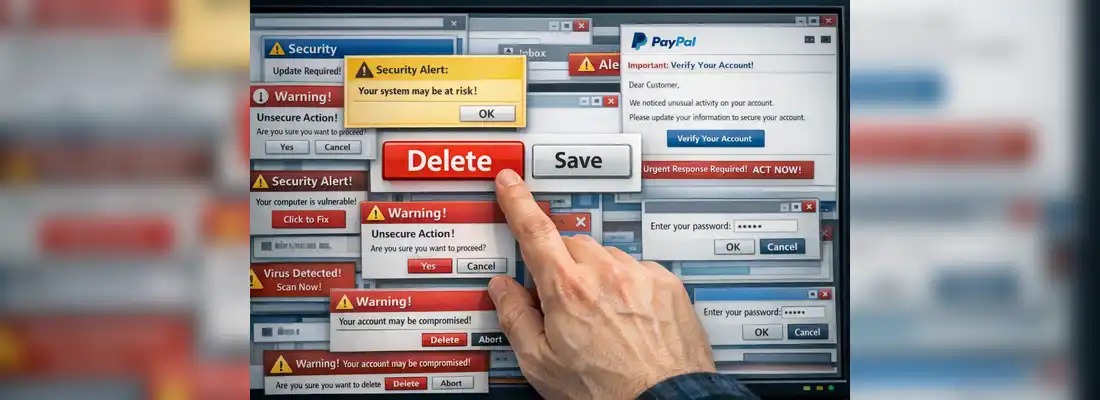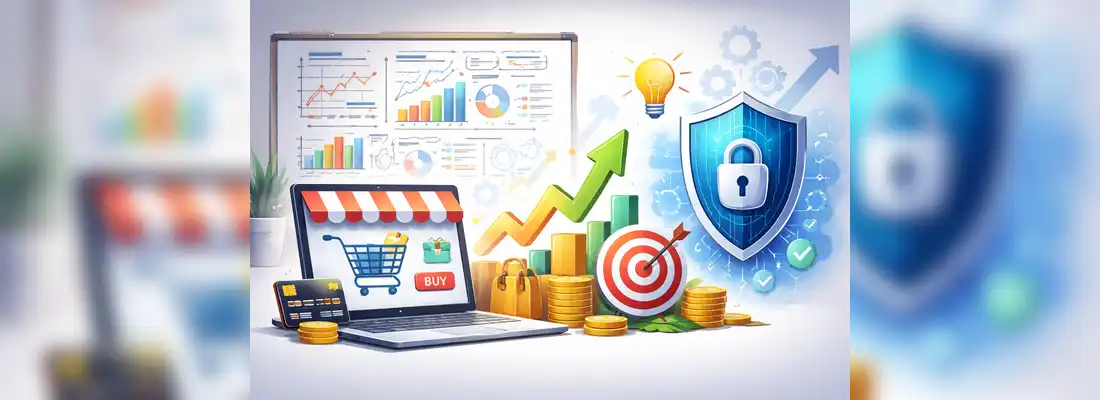Cyber Threats to Financial Data: Why CPAs Must Stay Ahead
Date: 12 May 2025
.webp?width=1170&name=cpa_cropped%20(1).webp)
The finance sector is quite susceptible to cyber attacks since the security of digital financial assets makes it so. Cybercriminals with continually changing attack techniques find banks, investment companies, and insurance firms appealing. The necessity for companies to apply strict cybersecurity policies is rising daily, given these mounting hazards.
In finance, cybersecurity refers to all the procedures, tools, and technologies implemented to protect consumers, assets, and financial institutions against these developing digital hazards.
Here are ways CPAs can stay ahead of cyber threats.
Proactively Detect Risks
CPAs must aggressively find weaknesses and vulnerabilities and guard against "active" issues such as phishing and ransomware. They have to set up systems for this.
Moreover, these defensive tactics should cover the technology involved and its users. Comprehensive security is a shared duty where human variables and digital systems interact in complicated complexity.
How would you approach it?
- Use risk analyses for a corporate health check.
- Apply the zero-trust factor, aiming to safeguard the security infrastructure and network.
- Look for advanced persistent threats (APTs) and keep an eye on endpoints with instruments like endpoint detection response (EDR)
- Use cyber risk management tools like MetricStream IT for risk identification.
Implement Multi-Factor Authentication
Use multi-factor authentication as all access points need more than a password to connect to the network. Despite little effort, using confirmation by text messages, phone calls, or fingerprints will significantly improve a company's security.
Employees should be pushed to limit the online distribution of work-related data since potential attackers might use this behaviour for social engineering projects. Avoiding including the names of clients or colleagues in personal social media posts will essentially reduce the ammo load of cyber thieves.
Provide Training and Cultivate a Security-Conscious Culture
Owners of CPA firms should provide security awareness training comprising practical exercises. In particular, one should use realistic and demanding phishing simulators. To support excellent practices, carefully combine instruction with engaging exercises.
Build a company stressing a "culture of security," with an eye toward data management and governance. Remember that the business side, not only the divisions on IT and risk management, has to offer strong support for this project.
CPAs can run cybersecurity governance and risk management initiatives using voluntary frameworks, which can incorporate risk assessment. Encourage employees to enroll in CPA courses that focus on cybersecurity and data protection. There are CPA course requirements needed for professionals to obtain a certification in cybersecurity governance and risk management.
Beyond short courses, CPAs who oversee cybersecurity governance benefit from graduate study that blends finance, analytics, and information systems. To develop the leadership and decision-making skills required to embed security practices across the firm, explore Baylor's flexible online MBA, designed for working professionals to upskill without pausing client work.
For example, the National Institute of Standards and Technology (NSIT) has five ongoing operations listed below:
- Gain an organizational awareness of handling cybersecurity risk to systems, people, assets, data, and capabilities.
- Protect: Act early to apply suitable security measures to guarantee the provision of vital services. You can therefore take charge of your cybersecurity scene.
- Detect: Identify the occurrence of a cybersecurity incident.
- Respond: Act in response to a found cybersecurity incident.
Maintaining resilience strategies and restoring any capacity or services lost by a cybersecurity event is vital.
Allocate Responsibility
Like any commercial operation, computer security depends on clearly identifying what has to be done and who will accomplish it. A senior manager with a broad perspective on all the hazards and how to address them should ultimately bear overall accountability. Some people can manage specific tasks, such as setting up security software.
Management should find the technologies and data essential for the company and identify the main dangers. For instance, losing your customer list or damaging your financial system could cause the company to close. Other data might not be as significant.
Likewise, specific computers are undoubtedly more sensitive or vital than others. Targeting your security efforts where they are most needed can assist you in identifying the hazards, determining what security measures exist, whether they work, and what more is required.
Secure Your Computers and Network
Malicious behaviour might originate from within or outside of your company. Install a firewall to guard against attacks from outside, like those of troublemaking hackers or rivals. Examining all the computer communications coming in and out of the company, this software or hardware determines if it is safe to allow them to pass through.
It can also be used to control the internet activities of your workforce, for example, by restricting access to chat sites where staff members might run across security issues. The firewall can be set to allow or forbid particular types of activity.
Firewall comes in numerous forms. You can purchase a software firewall solution, or the router your internet service provider (ISP) provided may already have one built in.
Managed Security Service Provider Partnerships
Managed security service providers (MSSPs) provide thorough cybersecurity solutions catering to accounting companies' particular requirements. MSSPs offer a completely managed security system, guaranteeing ongoing protection by their experience in identifying and reducing risks.
While leaving the complexity of cybersecurity to experts, round-the-clock monitoring lets accounting professionals concentrate on serving customers. Keeping current with the newest security technologies and protocols helps MSSPs provide a dynamic and flexible solution that keeps your company safe in a constantly shifting digital terrain.
Companies working with an MSSP leverage already-developed cybersecurity tools. Investing in an MSSP lowers the likelihood of cyberattacks rather dramatically. Outsourcing guarantees companies have seasoned cybersecurity professionals without having to pay for permanent staff.
Strong Password Policies
Accounting businesses should guarantee strong password policies across all systems and accounts. The password must be strong and include mixed uppercase, lowercase, numerals, and special characters. There has to be an avoidance of password reuse.
Companies should make sure everyone chooses unique passwords for their several accounts. For staff, password managers come in handy. They will safely save several complicated passwords for every account to cut down on weak passwords.
Regular password updates are crucial, and staff members should be sure they do not share passwords. Two-factor authentication (2FA) is the other security layer; it checks user identity. Strong password rules and 2FA must help guard sensitive data from illegal access.
Exercise Caution with IoT Devices
Since more gadgets than ever before are linked to the internet, data breaches and virus attacks become more likely.
Most accountants nowadays use copiers, printers, mobile phones, tablets, and laptops - internet-enabled devices - which become subject to malware assaults since most of these devices are utilized outside of the secure servers of your company.
As you implement cybersecurity protection, you must consider all the devices with online capability. Should one gadget linked to your network be compromised, the whole network is at risk.
Endnote
The first step in stopping cash or data loss to cyber scammers is knowing the main cybersecurity risks for accounting businesses. For this reason, CPA companies must invest in ongoing cybersecurity training courses for their accountants on the finest standards.






.webp)


